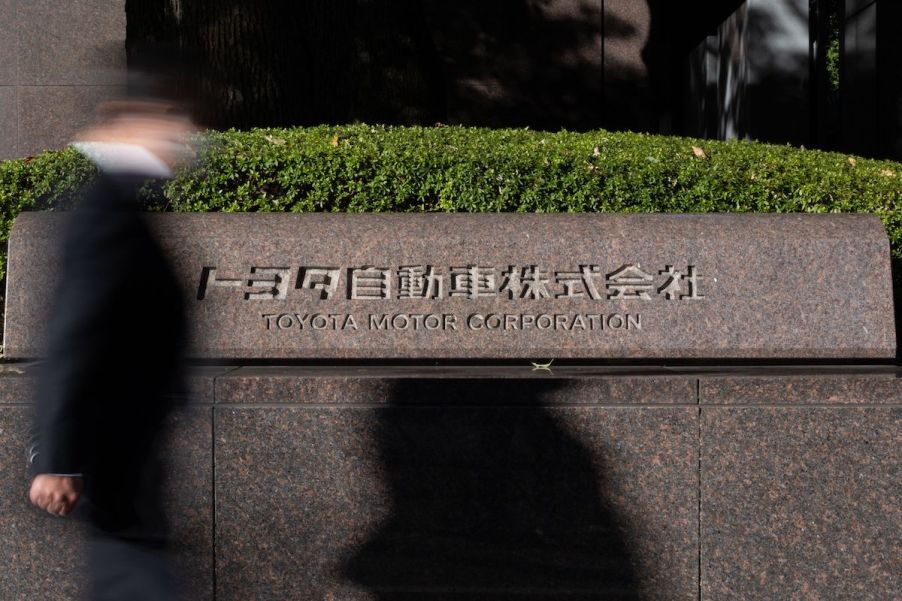
The 3 Surprisingly Beautiful Philosophical Secrets Behind Why Toyotas Are So Reliable
Toyota is the King of Reliability. Everyone knows this. This is the ethos of the Japanese firm. But have you ever stopped to wonder why this is something we all just accept? I mean, we accept it because we drive the cars and trucks, and they are reliable. Maybe the better question is, “Why are Toyotas so reliable and other car makers aren’t?”

What makes Toyotas so reliable?
According to the brilliant animals over at Donut Media, Toyota has built its empire on three philosophical tenants: Jidoka, Kaizen, and Practicality Over Performance.
These three ideas have kept Toyota and all of its employees over the decades pulling in the same direction. The brand’s techniques clearly work, and we want to know why.
What is Jidoka?
The first rule of the Toyota Production System (TPS) is Jidoka. Donut Media explains that Jidoka, when translated to English, means “automation with a human touch.”
The idea is that every aspect of Toyota vehicles is first designed by humans and built by hand. This means every part, every process, every everything is first handmade. Once the design is finished and deemed as good as they could do, the production process gets automated. This is special because most production processes are faster and designed to be automated. Toyota’s way isn’t fast or even that efficient, but it makes for building quality vehicles. Dues to the time investment this requires, Toyota reuses a lot of parts, as you may have noticed.
What is Kaizen?
Kaizen is a Japanese philosophy that promotes the idea that change for the better is always worth doing. This is not common thinking for mass production because a key part of Kaizen is that as long as the change will fix an issue and make something better, it’s worth doing, even if it is slow and impractical. Despite the fact that Kaizen could be spun to contradict Jidoka, it doesn’t have to. Here is how it works for Toyota.
Kaizen’s implementation on the line means that any employee at any level of the company can stop production if they notice an issue or something that could be made better. For American companies, that idea seems like something that would eventually get someone fired or at least named the least favorite coworker; Toyota rewards this thinking. For example, at Ford’s Dearborn, MI plant, production stops, on average, two times a week. At Toyota’s Kentucky plant, production stops roughly 2,000 times per week. Kaizen isn’t interested in getting things built quickie; it only cares about it it’s built right.
The practice of Kaizen has proven two things at Toyota: If workers have the freedom to voice concerns; they will. The other takeaway is that Toyota employees have caught many issues on the line before the cars go to market. This saves money on recalls, retrofitting new parts, and brand reputation issues.
Practicality over Performance
For as many great cars and trucks as Toyota has made over the years, there really aren’t many fast ones. Before y’all freak out on me, think about it. While the Supra and MR2 are super fun and cool, they aren’t very fast as stock cars. While TRD has built plenty of fast race cars, Toyota really doesn’t make super fast cars. They have spent decades building practical engine designs that are meant to last, not blast. That’s not to say you can’t make a Toyota fast. You can. You really can.
Part of the practicality is overbuilt, heavy iron blocks making bulletproof engines. The 22RE is one of the more famous of these engines.
Toyota has proven its production methods so thoroughly that Toyota is going to build a city. The details are scant, but the idea is that the “Woven City” will be a future city built around next-gen tech. This is a flex. Could imagine if Tesla made a city?
Why are Toyotas so reliable?
Toyotas have earned their reputation by taking things slow, critiquing problems in production, and taking the long slower way. Toyota builds practical, reliable, yet still cool cars that we know we can trust.





